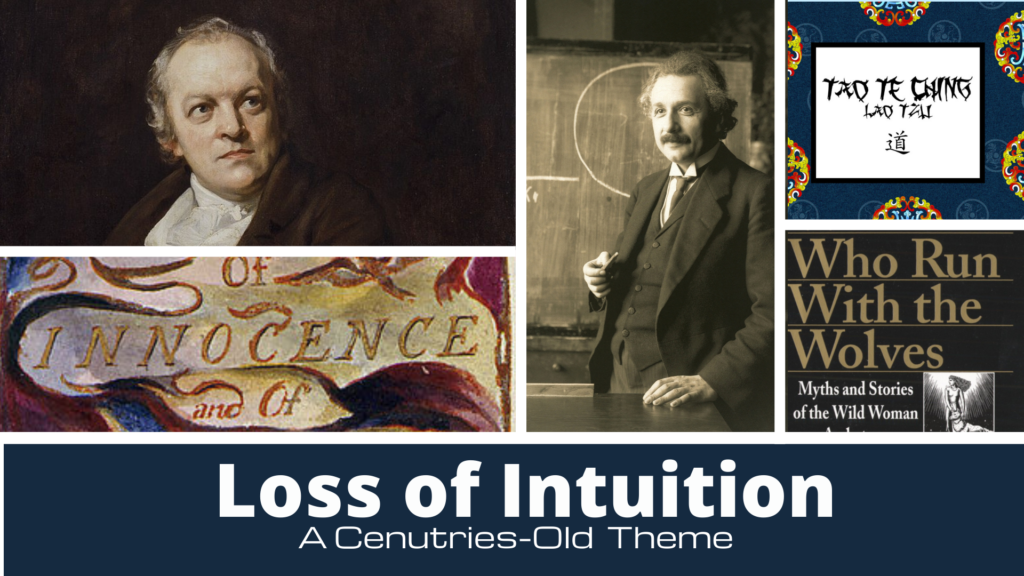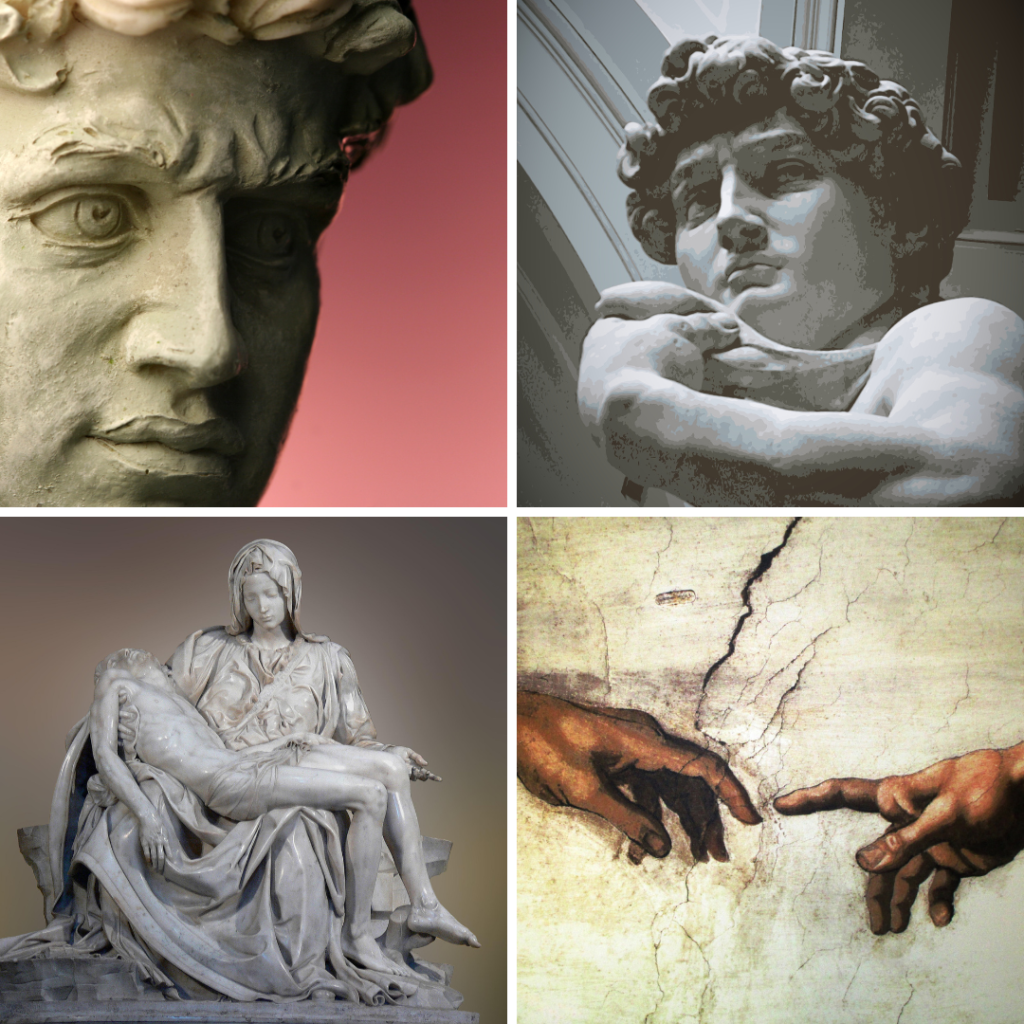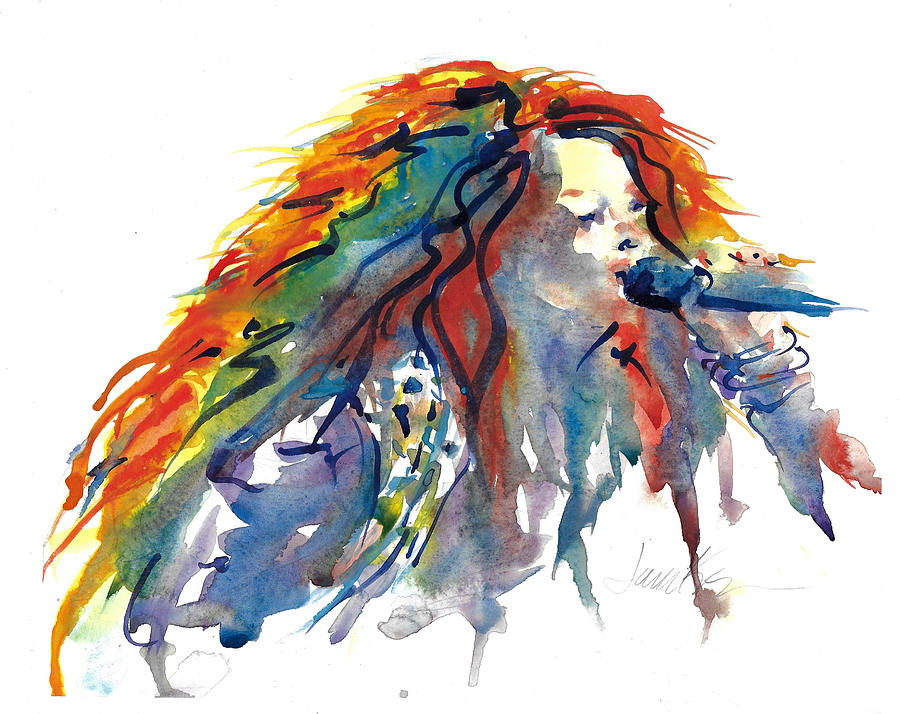
Romanticism is a Cultural Movement that is almost 300 years old. It began with the teachings of Jean Jacques Rousseau in the 1700s. I discovered Romanticism when my 10th-grade English teacher introduced me to William Blake’s Songs of Innocence and Experience. Blake’s Experience is a state of alienation and emotional exile. I grew up in a tiny town in the middle of a cotton field, and my 10th-grade English teacher was also my 12th-grade English teacher and my 7th-grade English teacher. On the first day of 7th grade, Miss King scribed the following words: Hitch Your Wagon to a Star. Miss King was my lamp. She saved my emotional life.

William Blake’s Innocence is what Estes calls Wild Woman in her book Women Who Run With the Wolves.
William Blake wrote The Songs of Innocence in 1789.
Women Who Run With the Wolves was published on 1989–exactly 200 years later.
To set the record straight:
- Estes is yet another Romantic writer.
- Romanticism is almost 300 years old.
- Men also experience emotional alienation.
- Lao Tzu described the same state of alienation 2500 years ago.
I don’t say this to discredit Women Who Run With the Wolves. In her book, Estes has linked this sense of emotional alienation to myths and other stories. Women Who Run With the Wolves is an invaluable resource for writers–ALL writers–both women and men.
50 years ago, I wrote one of my master’s theses about William Blake and his themes of innocence versus experience, His writings and my understanding of Romanticism have influenced my life and work since that time. During the early years of my adulthood, I taught visual art, and I have written several articles about how children have a stronger sense of intuition than most adult artists have. The artist’s intuition [child artist or otherwise] is essential to making correct artistic choices.
Estes addresses the importance of intuition in her book Women Who Run With the Wolves.
When we assert intuition, we are therefore like the starry night: we gaze at the world through a thousand eyes.”
― Clarissa Pinkola Estés, Women Who Run With the Wolves: Myths and Stories of the Wild Woman Archetype
Intuition is vital to my creative process. My intuition is a force that helps me to choose what to keep and what to let go of in my art:
To choose just because something mouthwatering stands before you will never satisfy the hunger of the soul-self. And that is what the intuition is for; it is the direct messenger of the soul.”
― Clarissa Pinkola Estés, Women Who Run With the Wolves: Myths and Stories of the Wild Woman Archetype

When I am painting, I consider it a great day when something within myself takes over and essentially completes my project for me. This gentle urging is intuition. It is the spark that helped Michelangelo release his sculptures from a piece of rock, and it has become the identifying characteristic of my painting.

Janis Joplin – A Watercolor Painting by Jacki Kellum
When people comment on my paintings, they most often speak about my bold use of color and the bravery that they see within my marks. But when people comment upon the bravery that I exhibit when I paint, I must correct them. I am not the brave participant in my paintings. My intuition is. When I am having a good painting day, an inward force literally takes control of my hand and it urges my hand to dip into a little more red and to slash it here or to place a little pink there, or to blob more blue somewhere else. My only courage is to allow my intuition to take control. Often, I am surprised by what my intuition has painted:

“I don’t know! I don’t know why I did it, I don’t know why I enjoyed it,
and I don’t know why I’ll do it again!”
– Bart Simpson –
While creating, a creator is often clueless about what drives him to make one mark here or another blotch there. When I am having a good writing day, the same thing happens with my words–the words begin to write themselves.
My Intuition Actually Wrote My Debut Picture Book, The Donkey’s Song, I Just Typed
But in order for my intuition to take the wheel, I must truly focus while I am working, and I must allow myself to become absolutely mindful and present.
Shakti Gawain very accurately describes the artistic impulse or the process by which intuition guides an artist. She calls this force “…an intuitive sense [that] operates moment by moment, giving us only the piece of information or the energetic nudge we need to take the appropriate action right now. If we keep following the energy, the next impulse will come to show us the next step. As we keep following our inner guidance, a path unfolds that takes us in the exact direction we need to go. ” Shakti Gawain, Developing Intuition, pgs. 70-71.
During the harrowing experiences of maturing, adults begin to doubt the choices that the intuition seems to be making. Gradually, they become more other-oriented than internal. This is often caused when we regard the expectations of others more than we regard our own feelings. Shakti Gawain says that our cultures also increase our self doubts. She adds: “Our culture conditions us to believe that we must always be doing something outwardly productive. [Not many people feel that creating a painting is outwardly productive.] … We have lost the value of being–taking time to rest, relax, contemplate, explore the inner realm, and generally replenish ourselves. We are terribly out of balance in this respect.” -Shakti Gawain, Develop Your Intuition, p. 87
The damaged adult versus the innocent child was the theme of Romantic writer William Blake. Other Romanticists also wrote in support of the innocent child, but William Blake’s writing is obsessive. Blake ultimately created a new religion based on the state of innocence and its untainted imagination. He pleaded with mankind to return to the religion of innocence and his literary character Los [who was the embodiment of imagination] was the Christ-like figure who would lead his followers back into the fold of innocence. But the Romanticists weren’t the first to expose emotional alienation. The ancient philosopher Lao Tsu also described the state of alienation as that which results from a life that is not centered upon the pure, the inner being, or as William Blake called it, innocence –or as Estes called it, the Wild Wolf Woman. Lao Tsu warned against cultural demands, calling these demands the Rules of Propriety:
“The rules of propriety are the semblance of loyalty and faith, And the beginning of disorder. Traditionalism is the flower of Reason, But the beginning of ignorance. Therefore great organizers abide by the solid, And do not dwell in the external. They abide in the fruit, and do not dwell in the flower.” Chapter 38
“One who knows others is clever, but one who knows himself is enlightened. One who conquers others is powerful, but one who conquers himself is mighty.” Chapter 33
The wise are not learned; the learned are not wise.” Chapter 81 Tao Te Ching
In other words, traditional teaching seeks products, externalized behavior which suggests that learning has taken place. Education is not from within–it is not the essence.
The externalized rules of education are much the sames as the rules that men apply to spirituality. Religions are born out of rules. Spirituality is an internal source–not a man-made framework for that source. Wisdom is the source of knowledge; education is a man-made framework. Many philosophers have criticized what education has done to the process of learning.
When we begin to rely more upon these external rules–the outward expectations for us–we begin to mute the voice of intuition. The result is what William Blake called Experience and what Lao Tsu called the Rules of Propriety and Albert Einstein called “Common Sense.”
“Common sense is the collection of prejudices acquired by age 18.” – Albert Einstein
The “common sense” and the “rules of propriety” educate–rather than inspire:
“Education is what remains after one has forgotten what one has learned in school.” – Albert Einstein
“If you want your children to be intelligent, read them fairy tales. If you want them to be more intelligent, read them more fairy tales.” – Albert Einstein
“Logic will get you from A to Z; imagination will get you everywhere.” – Albert Einstein
“Not everything that can be counted counts, and not everything that counts can be counted.” – Einstein
“Try not to become a man of success. Rather become a man of value.” – Einstein
Discover more from Jacki Kellum
Subscribe to get the latest posts sent to your email.